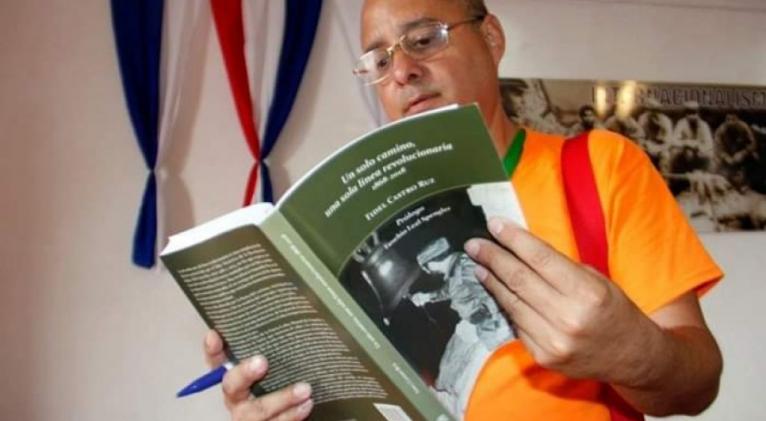Fidel Castro, Under the Urgency of Prophets
especiales

One path, one revolutionary line, 1868-2018. Fidel Castro Ruz groups ten speeches given by the leader of the Cuban Revolution.
A compilation of ten speeches given by the leader of the Cuban Revolution was presented at the Havana International Book Fair under the title One Path, One Revolutionary Line, 1868-2018. Fidel Castro Ruz.
The historical journey, however, does not begin on the date of the first compiled speech, but on the initial days of Céspedes’s Revolution, at Demajagua, when he opened the path to a deed in which Fidel was heir, architect, and prophet, all at the same time.
In his introductory speech, the director of the Institute of History of Cuba, Yoel Cordoví, pointed out that it’s precisely there the importance of this volume published by the Publications Office of the State Council in homage to the 150th anniversary of the beginning of the wars of independence, in the calling to answer useful questions such as:
«What did this event mean from the perspective of Fidel Castro, how he interpreted it as a process, with its specific events and personalities. Which were those elements in the history of the Cuban revolutionary process that he identified and recreated the most, as characteristic to his educational work ».
With a foreword by Dr. Eusebio Leal Spengler, the book also includes a historical analysis of the Cuban Revolution until 1975, extracted from the Central Report to the First Congress of the PCC, but it’s not a compilation of chronologically speeches, according to the Doctor in Historical Sciences:
«Each material is expressed in a coherent way in order to show the organicity of Fidel’s thinking, from the most relaxed approaches in evenings and commemorations, to the most fiery, as the one pronounced at the funeral of the victims of the bombing to different sites of Cuba on April 16th, 1961, on the eve of the mercenary invasion of Playa Girón. The contexts are different, true, but not the logic of his interpretation of history and, particularly, of the continuity of the revolutionary process; it’s rather enriched ».
The Commander in Chief taught us to understand the Revolution as a process, as a continuity line marked by milestones, moments of essential turning points, always part of the Latin American context, always looking at the world. A constant battle to do the impossible against the hostility of a powerful neighbor.
Under the urgency of prophets, as the Historian of Havana wrote in the foreword, Fidel lived, and thus we’ll read in a book that travels with him in different times, but in the same perpetual calling. In Cordoví’s words:
«Despite time, and the changes in the international politics panorama, the strategies of domination and control have not lost their hegemonic principles, but neither have been lost the humanistic tradition, counterhegemonic, antisystemic thinking, and the morals of critical thinking taught by Fidel. The task of many is, and will still be, the study of his political teaching »













Add new comment